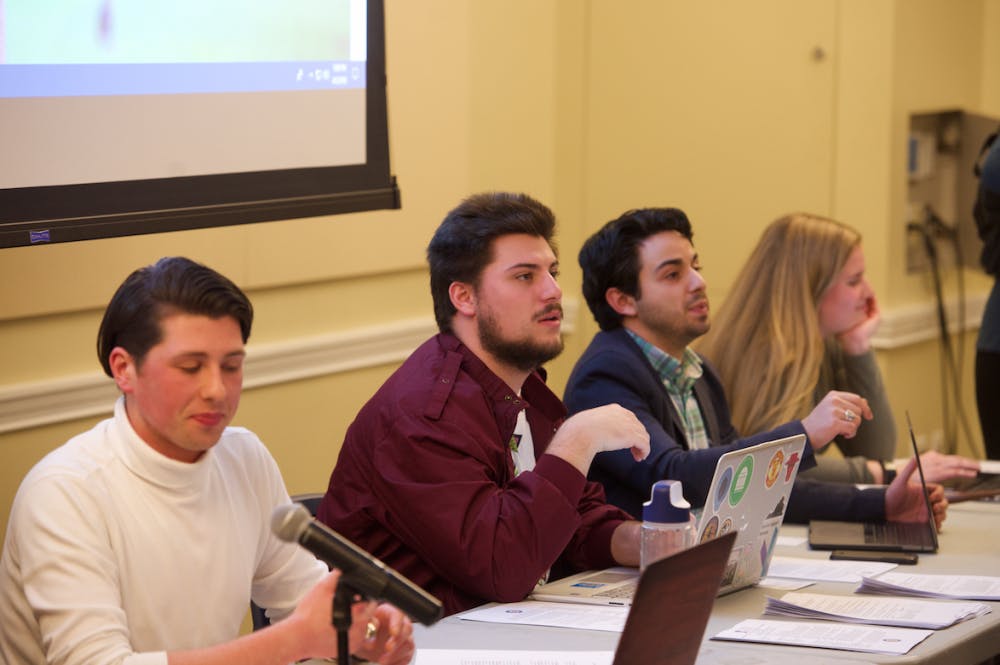Election season is my favorite time of the year because I get to see passionate, dedicated students spend hours campaigning for the privilege of committing their precious time to the betterment of this school and the experiences of the students here. However, last week, Opinion Columnist Milan Bharadwaj suggested in a column that Student Council is nothing more than a “bookkeeping club.” He could not be more wrong. The Council is an advocacy organization that works alongside both student organizations and the administration to achieve policy changes. This advocacy sometimes happens behind the scenes, and it is often for the benefit of marginalized students at the University.
Bharadwaj claims that the Council gives students few convincing reasons, if any, to cast a vote. I disagree — the Council’s presidential campaigns from both this year and last publicized concrete, actionable platform policies. Any students who were interested in voting could easily access incoming Council president Ellie Brasacchio’s platform, which contains policy goals such as providing free and open online textbooks for students, dedicating a space for Latinx students, securing discounted meal plans for low-income student and lobbying the Attorney General for a reinterpretation of the statue to provide a living wage to contract workers. The current Council administration has been successful at achieving many of its goals, including the creation of the Student Police Advisory Board, registering 500+ students to vote this past election cycle, lobbying legislators on behalf of DREAMers and for public education funding and helping to build an ADA accessible Lawn Room.
Bharadwaj brushes off legislation, calling it “an amalgamation of meaningless resolutions.” As a Jewish student, it meant a lot to me and my community when Student Council unanimously passed a bill condemning the terrorist attack in Pittsburgh, especially at a school where Nazis marched down the Lawn fewer than 18 months before. Creating an online handbook for transfer students at a school where transferring is notoriously challenging should hardly be heralded as ‘meaningless.’ By passing a resolution calling for professors not to hold exams on election day and working with the Faculty Senate, Student Council made significant steps in reducing a huge barrier to student voting. What Bharadwaj fundamentally misunderstands is that the Council’s legislation is an expression of the student voice to the University administration and serves as leverage in policy advocacy. The best way to uphold student self-governance is to support other students as they fight for what they believe in, and that is exactly what the Council does time and time again.
Bharadwaj believes that the Council does not have good outreach, calling the website an “unkempt nightmare.” While certainly the Council, like many organizations on Grounds, could improve its outreach efforts, this position ignores its biweekly external newsletter and active Facebook page. Students have the right not to read this content, but they should not pretend that the Council is failing to update them. Students should also consider the Council’s extensive Fall 2018 report, emailed to all students. It is also important to note that current Council President, Alex Cintron, meets as often as biweekly with many student leaders, including those of the Black Student Alliance, the Latinx Student Alliance, the Organization of Young Filipino Americans and College Republicans to shape his agenda in meeting with administrators. These meetings ensure that we have a Student Council that prioritizes the needs of different communities on-Grounds.
Bharadwaj questions the principle of student self-governance, asking if “a student-run organization should have any sort of substantial power.” The alternative, of course, is having administrators set our rules and tell us what we can or cannot do, which is antithetical to the University’s mission to preserve student self-governance. Calling the students in power “homogenous,” furthermore does a disservice to our current leaders. We have students of a variety of religious, economic and experiential backgrounds, and it is both insulting and incorrect to call the leaders we have homogenous.
At a school that runs on student self governance, criticism is vital to the continued excellence of our community. However, criticism without prior research, solutions or an understanding of the hours students dedicate to their jobs is useless and even harmful. Bharadwaj calls the Council “virtually powerless,” and yet I would argue there is not a single student at this school that has not been touched by it — and that is student self-governance at its finest.
Galen Green is a fourth-year student in the Commerce School. She currently serves on Student Council Legislative Affairs Committee and is the Trustees Class President.
CORRECTION: This article incorrectly referred to Ellie Brasacchio as a candidate for Student Council President, when she has since been elected. It has been corrected to reflect the outcome of the election.





